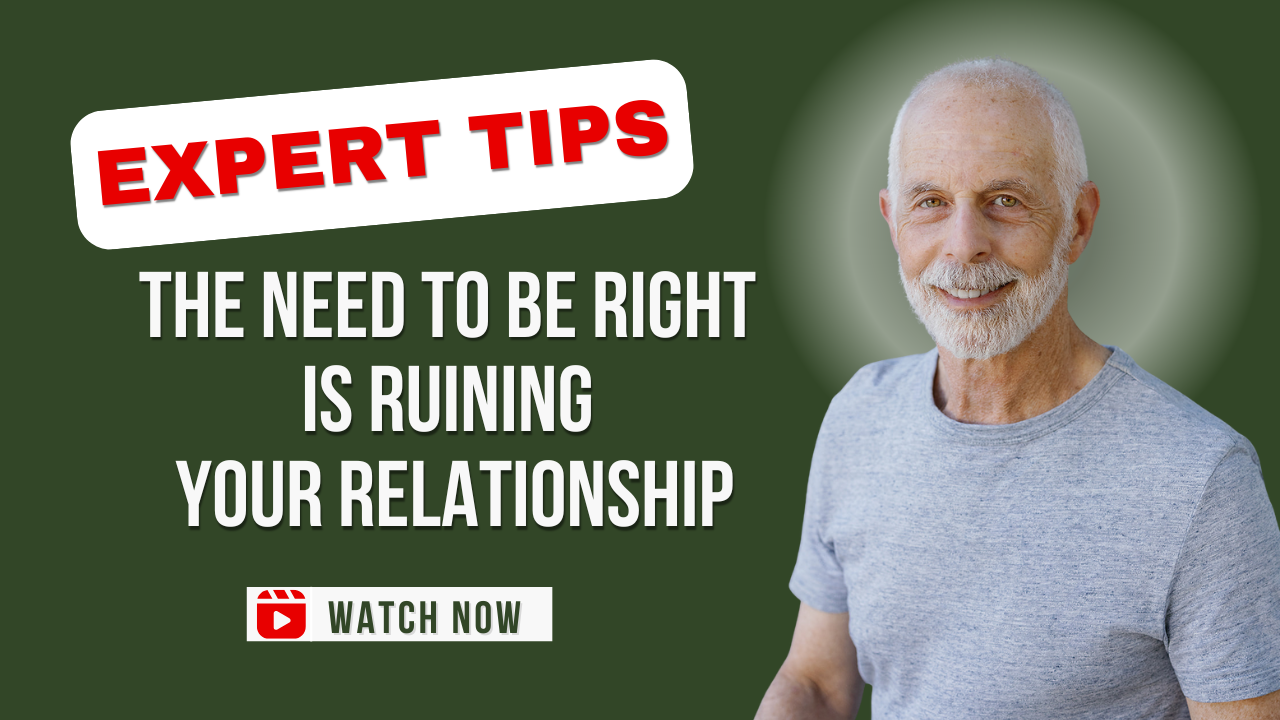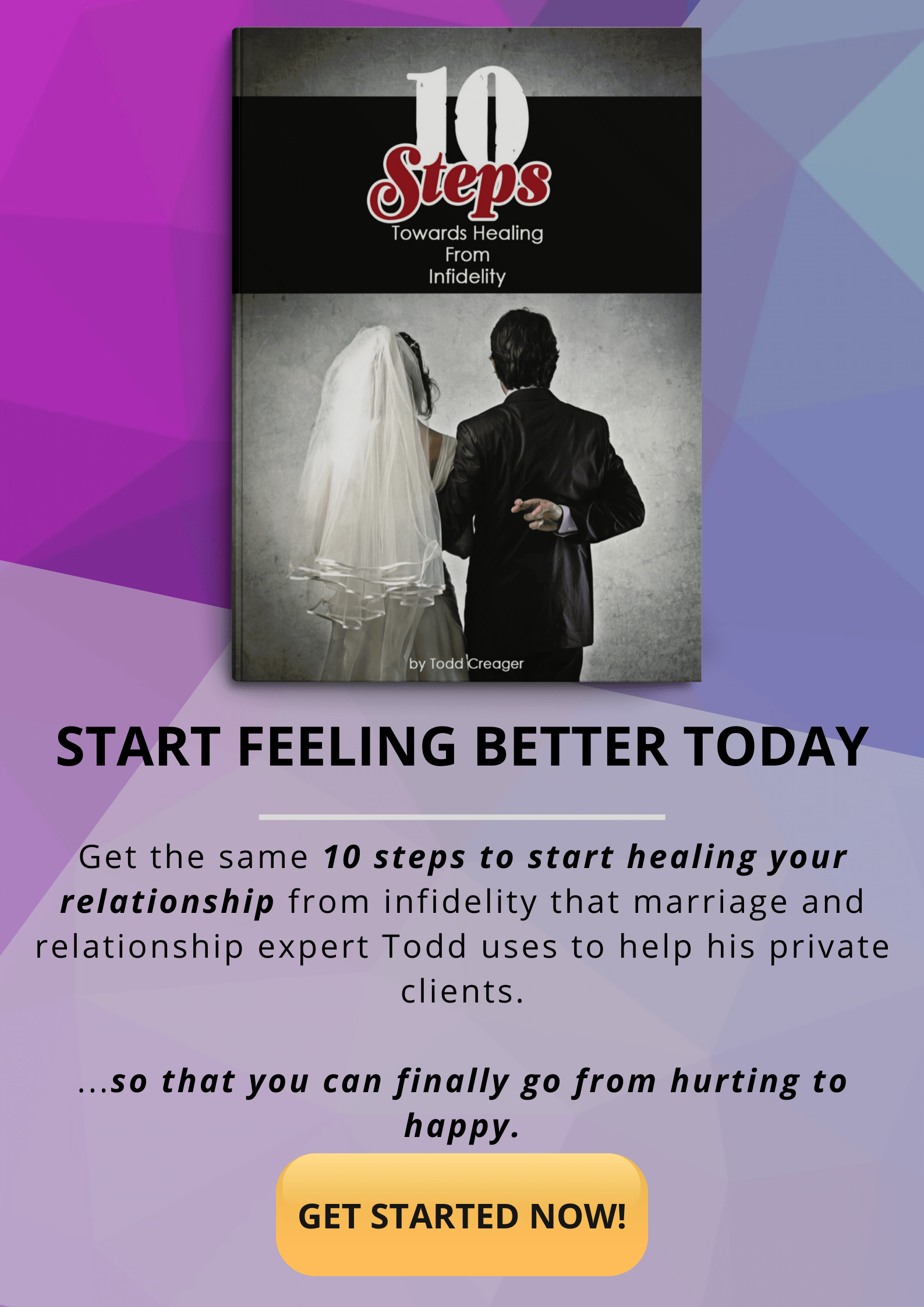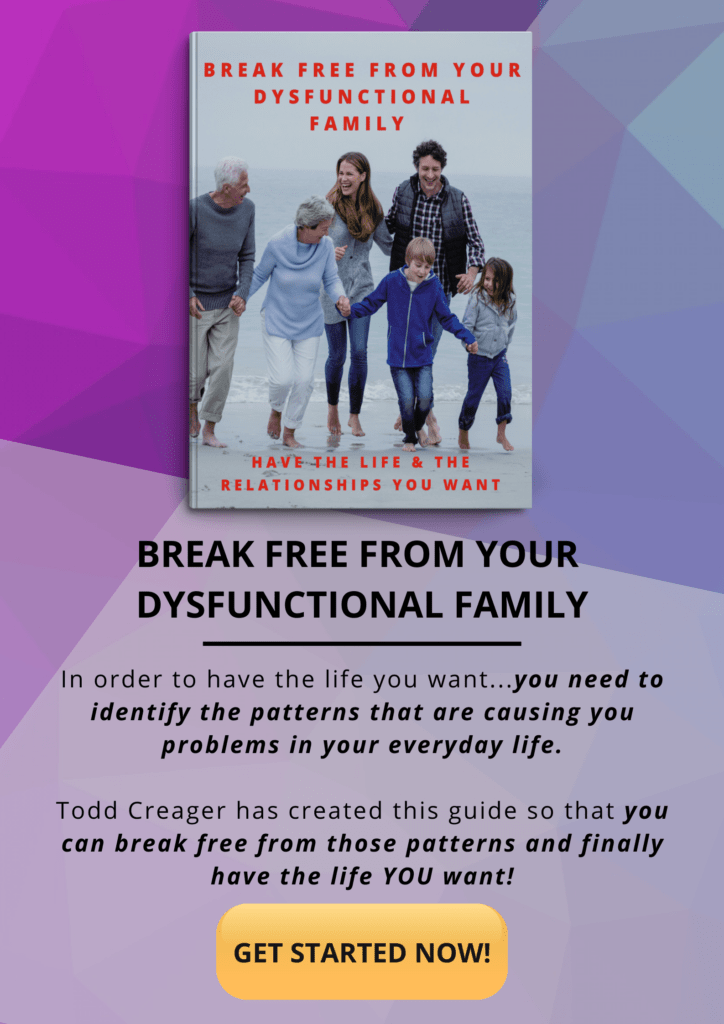You know what I see week after week in my therapy practice? Couples sitting across from each other, both absolutely convinced they’re right. And they are—sort of. They’re right from their perspective. But here’s what they’re missing: being right is costing them their relationship.
TL;DR: Most communication problems aren’t about who’s correct—they’re about the anxiety of not being validated. When couples race to prove they’re right, they stop listening. The solution isn’t better arguments; it’s developing the emotional muscle to prioritize understanding over validation.
But here’s what most people miss:
→ The need to be right functions like an addiction—it gives you a temporary hit of validation but damages long-term connection
→ Different personality types aren’t obstacles to overcome; they represent complementary values that both matter
→ Your partner feeling heard by you is more valuable than them agreeing with you
I’ve spent over four decades working with couples navigating everything from infidelity recovery to passion renewal.
And I can tell you this: the smartest, most accomplished people often struggle the most with this issue. Why? Because being right has served them well in other areas of life. But in relationships, it’s poison.
Why Couples Get Stuck in the Need to Be Right
Years ago, I took a training that introduced me to something called BLM—not Black Lives Matter, but “Be Like Me.” The instructor kept pointing out how we all walk around with this unconscious expectation: You’re supposed to be like me. You’re supposed to see things the way I see them.
But that’s not how humans work.
Take Sam and Barbara, a couple I’ve been working with. Sam’s successful in his career, very structured, follows a code of ethics and discipline. Barbara has her master’s degree, stayed home with their two kids, and approaches life with more flexibility—what I call “loosey goosey” energy.
They came to me saying they had communication problems. What they actually had was a Cold War. Years of it. Barbara felt Sam didn’t value her opinions. Sam insisted he just didn’t agree with her.
See the problem? Neither one felt understood. And when you don’t feel understood, you dig in harder. You explain more. You present your case more forcefully. You need to win.
The Addiction to Being Right in Relationships
When someone agrees with us, we feel validated. Maybe it means we’ll get what we want. There’s a neurological payoff—it feels good to be right.
But here’s the reality: in most conflicts, both people have valid perspectives based on their personality, their experiences, their values. Sam’s structure and discipline matter. Barbara’s flexibility and spontaneity matter. These aren’t competing values that need a winner—they’re complementary approaches that could strengthen their relationship.
The problem wasn’t their differences. The problem was their anxiety about not being validated, which led them to act in ways that made the other person feel unheard.
How to Stop Fighting About Who’s Right in Your Relationship
A colleague of mine wrote a book called “Do You Wanna Be Right or Do You Wanna Be Married?” That title says it all.
Sam and Barbara are learning to shift their goal. Instead of racing to convince each other who’s right, they’re racing toward something else: who can help the other person feel understood first.
That’s the opposite of what most couples do.
This shift requires developing emotional muscle. Just like you need physical strength to lift heavy furniture without getting hurt, you need emotional strength to handle life’s challenges with grace.
You can’t just decide one day, “Okay, I’m going to be a better listener.” You have to practice. You have to build that muscle through repetition, even when—especially when—you strongly disagree with what you’re hearing.
Practical Steps to Choose Connection Over Being Right
Here’s what I work on with couples:
1. Recognize the addiction pattern. Notice when you feel that urgent need to correct, explain, or convince. That’s the craving for validation kicking in.
2. Shift your intent. Your new goal isn’t agreement—it’s understanding. Can you get where they’re coming from, even if you think they’re completely wrong?
3. Build the muscle gradually. Start with less emotionally charged topics. Practice letting your partner feel heard without immediately countering with your perspective.
4. Value complementary differences. When you see different approaches—structure versus flexibility, caution versus spontaneity—ask yourself: “What’s valuable about their perspective that I’m missing?”
Sam and Barbara are doing this work now. It’s not easy. They still have moments where the old pattern kicks in—that need to prove themselves right. But they’re catching it faster. They’re choosing connection over correctness more often.
What Better Communication Actually Looks Like
Let’s say Sam thinks they should have a strict bedtime routine for the kids—same time every night, no exceptions. Barbara thinks some flexibility is fine—if the kids are having fun on a weekend, why not let them stay up?
Old pattern: Sam explains why structure is crucial for child development. Barbara counters with why rigid rules create anxiety. They both marshal more evidence. Nobody listens. Everyone feels dismissed.
New pattern: Sam shares why consistency feels important to him—maybe it comes from his own chaotic childhood. Barbara shares why she values spontaneity—maybe her parents were too controlling. They’re not debating parenting philosophy anymore. They’re understanding each other’s emotional reality.
From there, they can actually problem-solve. Maybe weeknights have structure, weekends have flexibility. But more importantly, they both feel heard. They both feel valued.
Building Emotional Muscle for Relationship Communication
Think about what happens when you try to lift something heavy without proper strength. You hurt yourself. You might drop what you’re carrying.
Same with emotional challenges. If you haven’t built the muscle to tolerate hearing perspectives that contradict yours, if you can’t sit with the discomfort of not being validated immediately, you’ll keep dropping the emotional weight of your relationship conflicts.
Building this muscle means:
→ Staying present when you disagree instead of rehearsing your rebuttal
→ Asking questions to understand rather than to poke holes in their logic
→ Reflecting back what you heard before offering your perspective
→ Noticing when your anxiety about being wrong is driving your behavior
It’s repetition, just like at the gym. The first few times feel awkward and uncomfortable. But over time, it becomes your new default.
Why Feeling Understood Matters More Than Being Right
Here’s something I’ve seen in my four decades of practice: couples who learn to give up the need to be right don’t just communicate better. They reconnect at a deeper level.
Because when you feel truly understood by your partner—not agreed with, but understood—something profound happens. You feel safe. You feel valued. The emotional armor comes down.
And from that place, you can handle disagreements without them threatening the foundation of your relationship. You can appreciate your differences instead of battling over them.
Sam and Barbara are starting to experience this. They’re becoming what they always wanted: a couple that communicates well together. Not because they agree more—they still disagree plenty—but because they’ve stopped making agreement the goal.
They’re choosing connection over correctness. And their relationship is stronger for it.
Moving From Conflict to Connection in Your Relationship
What I’ve shared with you about Sam and Barbara comes from real sessions, real struggles, real breakthroughs. The patterns I see in their relationship show up in countless couples—different personalities, same fundamental challenge of prioritizing validation over understanding.
This approach to couples work draws on personality type frameworks, attachment theory, and decades of observing what actually helps couples move from conflict to connection. It’s not about applying a formula—every couple is unique. But the principle of developing emotional muscle to prioritize understanding? That’s universal.
If you’re recognizing these patterns in your own relationship, know that change is possible. It takes practice. It takes building new habits. But couples do this work successfully all the time.
The question isn’t whether you’re right or your partner is right. The question is: do you want to be right, or do you want to be connected?
Todd Creager has been helping couples and individuals heal from trauma and rekindle passion for over four decades. His approach combines deep empathy with practical strategies for building stronger emotional connections.
Watch The Video where Todd Explains Why Being Right is Ruining Your Relationship






Reader Interactions